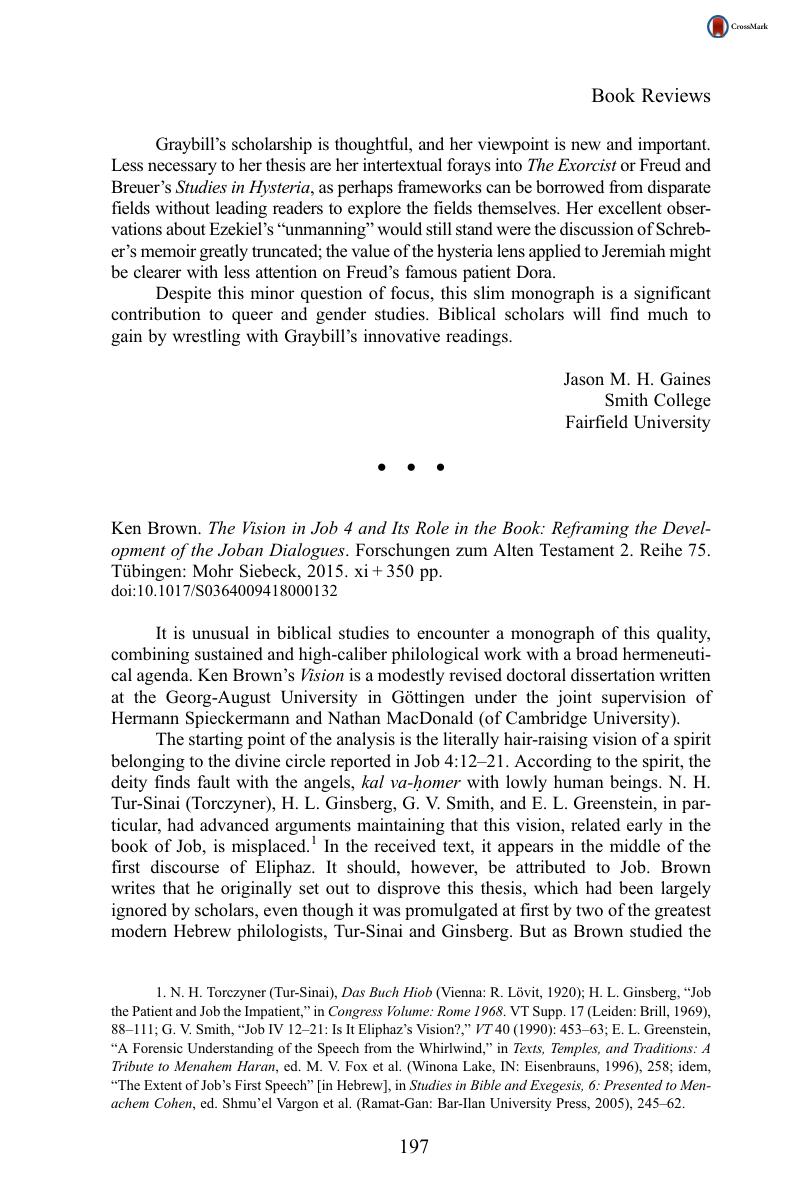No CrossRef data available.
Published online by Cambridge University Press: 20 April 2018

1. Torczyner, N. H. (Tur-Sinai), Das Buch Hiob (Vienna: R. Lövit, 1920)Google Scholar; Ginsberg, H. L., “Job the Patient and Job the Impatient,” in Congress Volume: Rome 1968. VT Supp. 17 (Leiden: Brill, 1969), 88–111CrossRefGoogle Scholar; Smith, G. V., “Job IV 12–21: Is It Eliphaz's Vision?,” VT 40 (1990): 453–63Google Scholar; Greenstein, E. L., “A Forensic Understanding of the Speech from the Whirlwind,” in Texts, Temples, and Traditions: A Tribute to Menahem Haran, ed. Fox, M. V. et al. (Winona Lake, IN: Eisenbrauns, 1996), 258Google Scholar; idem, “The Extent of Job's First Speech” [in Hebrew], in Studies in Bible and Exegesis, 6: Presented to Menachem Cohen, ed. Vargon, Shmu'el et al. (Ramat-Gan: Bar-Ilan University Press, 2005), 245–62Google Scholar.
2. Clines, D. J. A., “‘The Fear of the Lord is Wisdom’ (Job 28:28): A Semantic and Contextual Study,” in Job 28: Cognition in Context, ed. van Wolde, E. (Leiden: Brill, 2003), 57–92Google Scholar; E. L. Greenstein, “The Poem on Wisdom in Job 28 in Its Conceptual and Literary Contexts,” in ibid., 253–80.